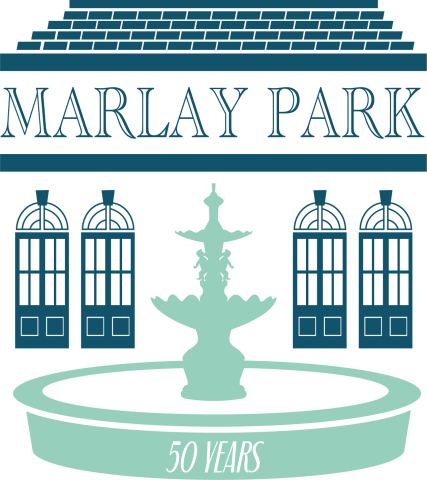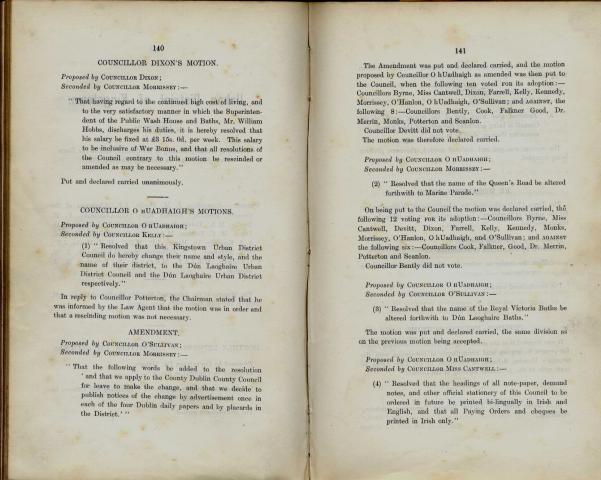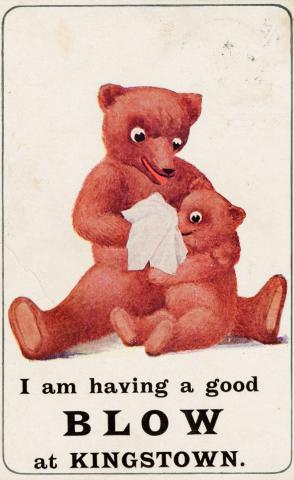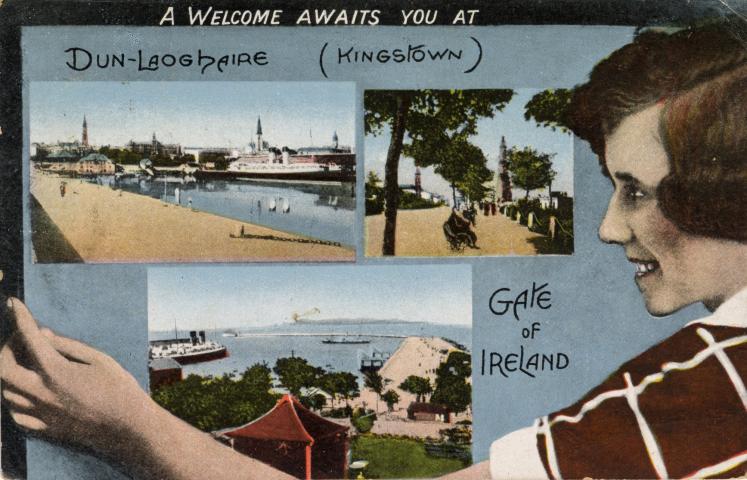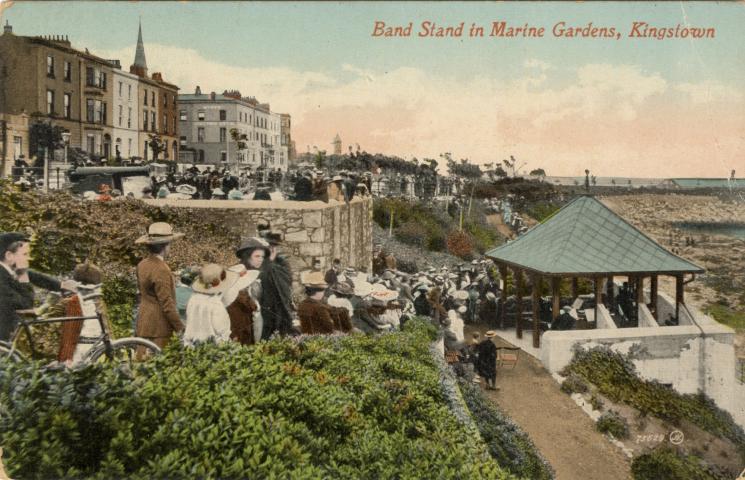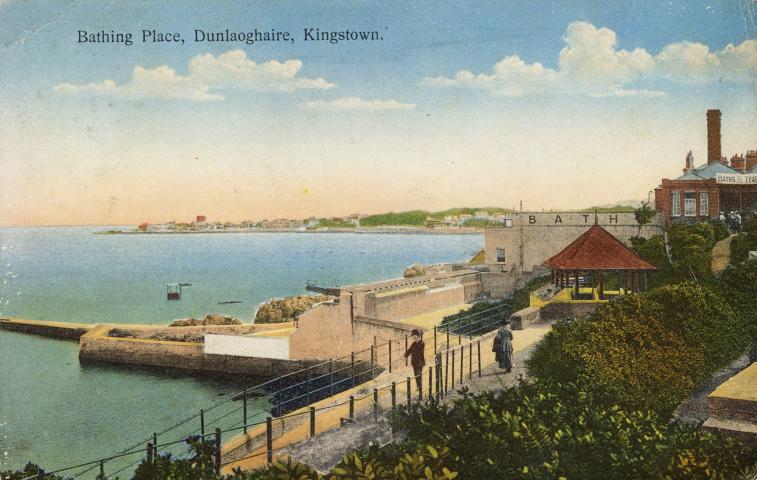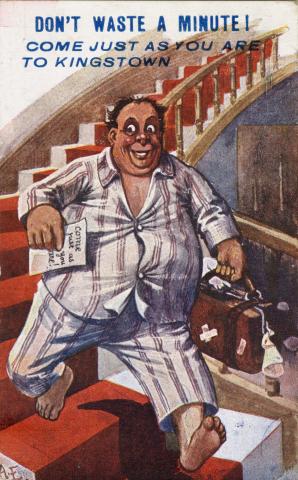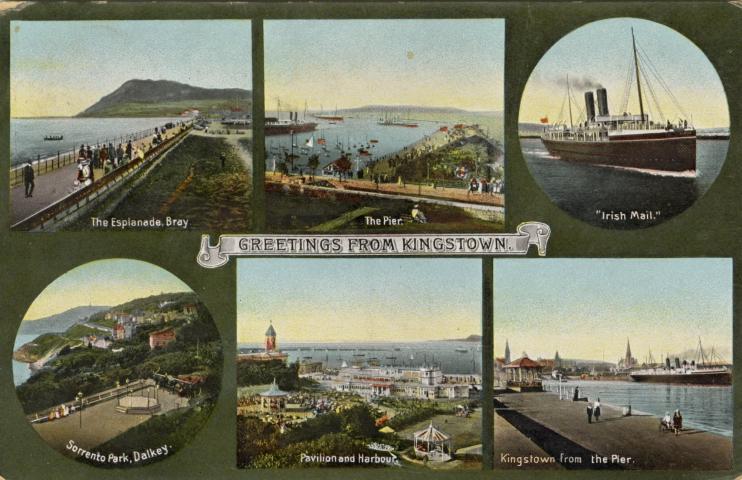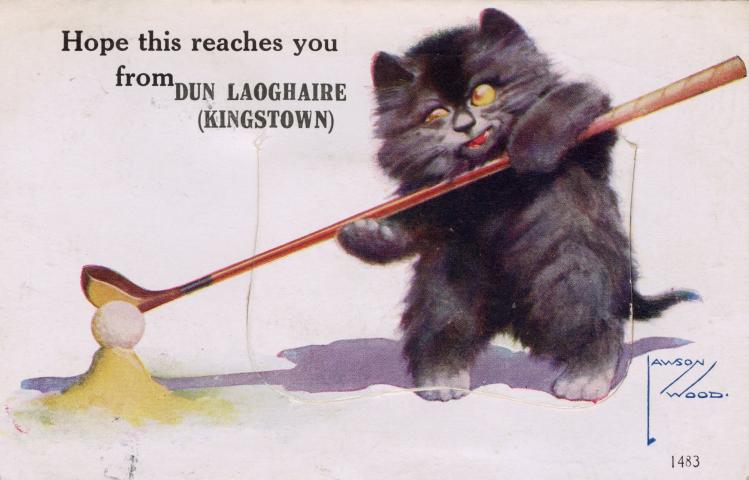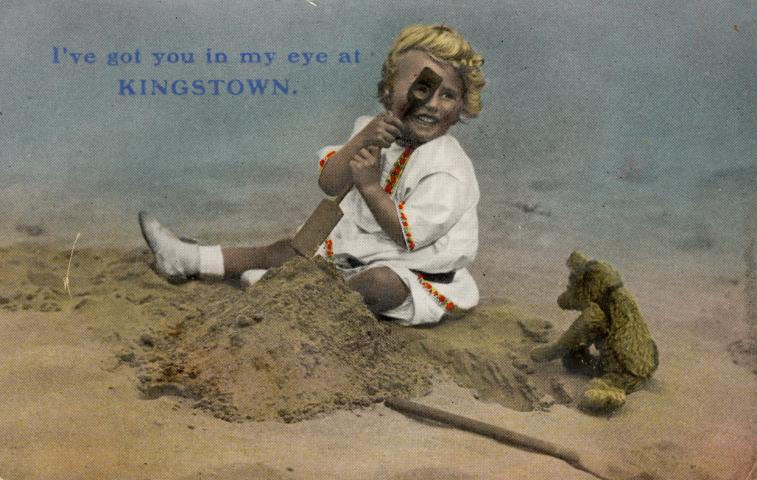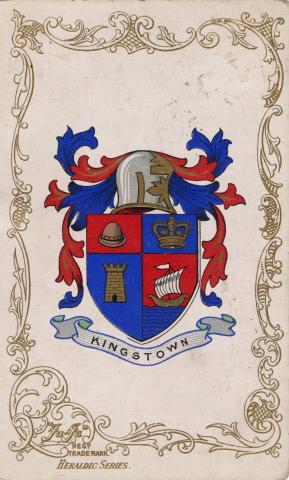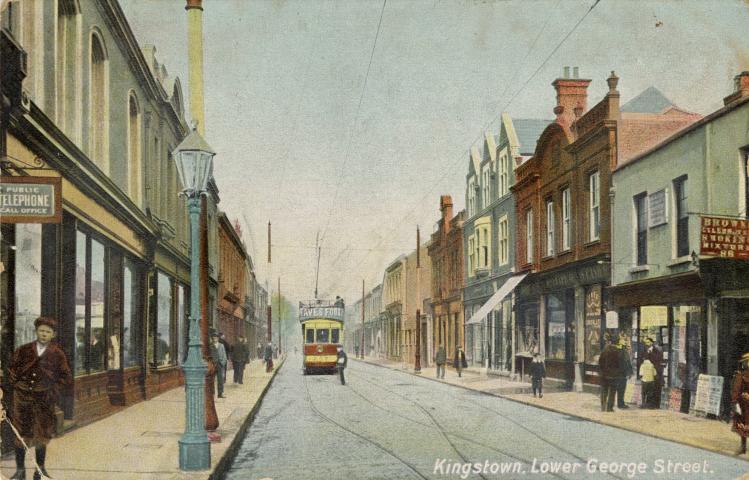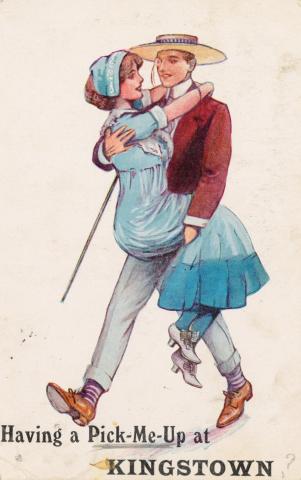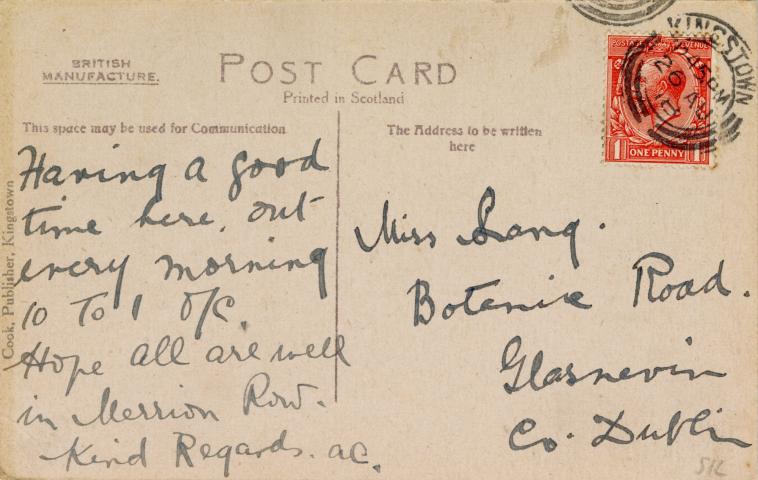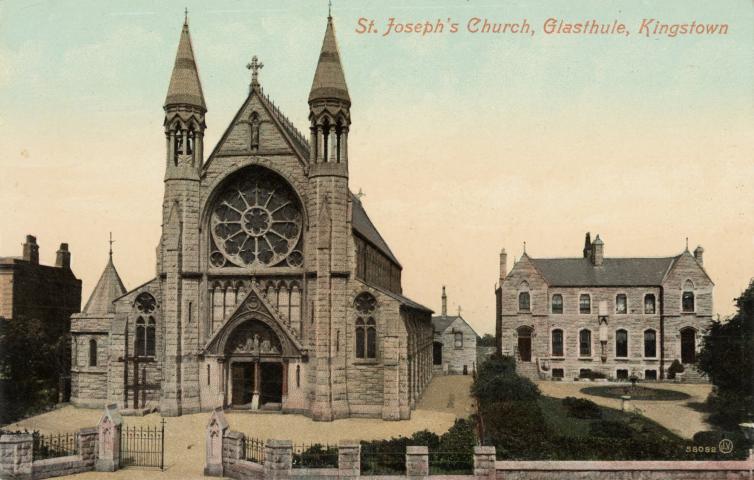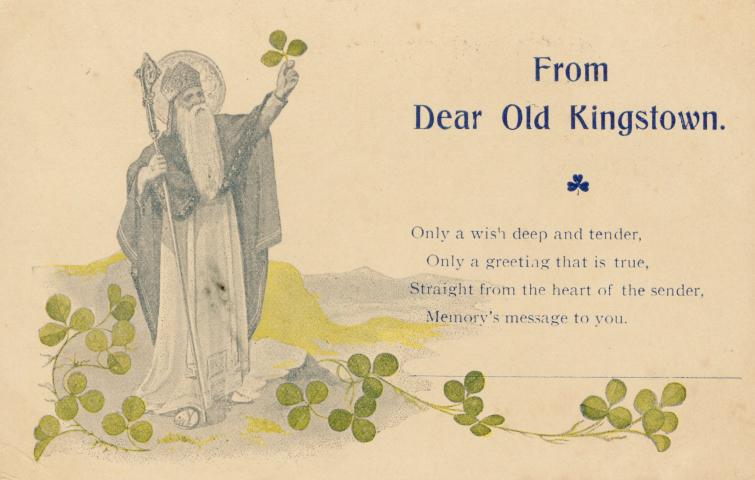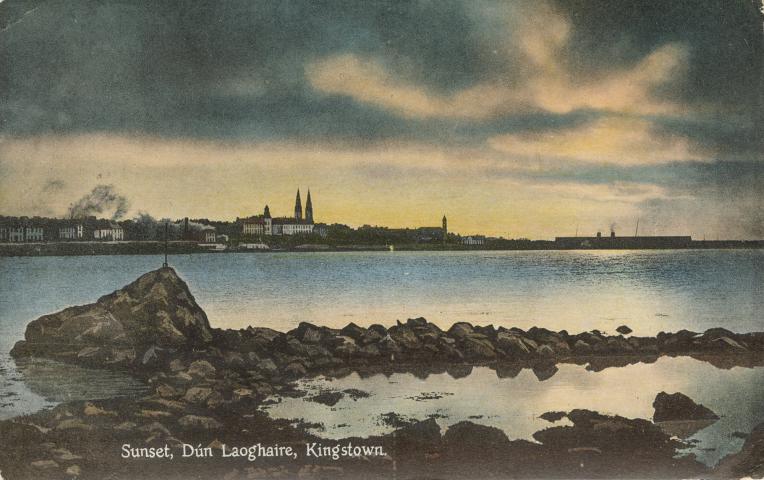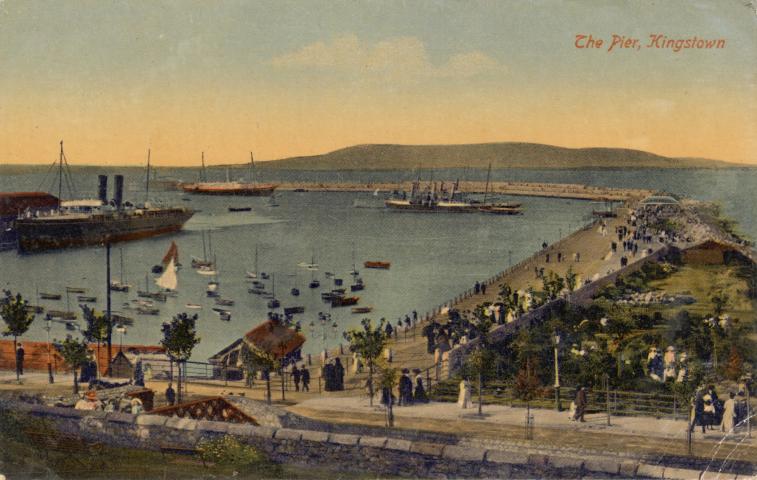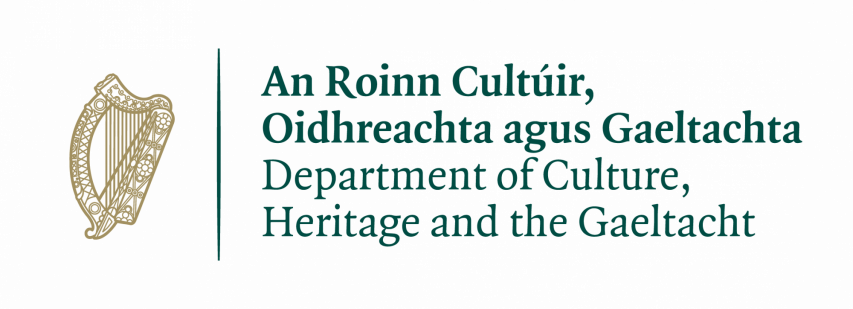What’s in a name? Dun Leary – Kingstown – Dún Laoghaire
A visual history through postcards celebrating the centenary of the town’s name change during the War of Independence.
In 1821 the name Dunleary or Dun Leary was changed to Kingstown in honour of George IV’s visit to this bustling and rapidly developing town. In 1920 it was officially given the name Dún Laoghaire, referring back to the original Irish name for Dunleary. It is asserted that the name came from an old fort (Dún) that belonged to a chieftain called Laoghaire. It was a deliberate political act during the War of Independence, an act of defiance against the old order in Ireland. Name changes became a common element of decolonised and newly independent states during the twentieth century. It was a strong feature across former colonies particularly in Africa, Asia and Europe as a statement of a revival of national interests. Dún Laoghaire was just one of many towns and villages that were renamed throughout Ireland during the twentieth century for a variety of reasons.
Council Minutes from the Urban District of Kingstown reveal that the change was proposed by Seán Ó hUadhaigh from the Kingstown Township on 6 July 1920, later confirmed by Dublin County Council on 24 July 1920 and acted upon a month later on 5 August 1920. At the same meeting on 6 July, several other name changes were proposed and carried, including that ‘the name of the Royal Victoria Baths be altered forthwith to Dún Laoghaire Baths’.
In the years following the establishment of the Irish Free State, the use of Kingstown gradually diminished and was replaced in the consciousness of visitors and residents of the town by variants of the name – Dunleary, Dun Laoire and Dún Laoghaire. It is of particular interest to note the use of a variety of names on the holiday postcards available in the town and the evolving story speaks to the complexity of how place-making happens.
dlr Libraries acquired nearly 700 postcards of this area from the sale of the Seamus Kearns Collection of Postcards in 2019. They are currently being catalogued and digitised and, along with a further approx. 300 postcards already in the Local Studies Collection will form the basis of an onsite and a digital exhibition featuring a selection of these postcards. Ephemeral material adds colour to the national story, tells individual stories and informs our understanding of the social and cultural preoccupations of the period.
In addition to the exhibitions (scheduled for November 2020), a short pamphlet featuring thematic highlights from the postcard collection will be produced and it is hoped that a seminar or series of talks/webinars will be held to mark the centenary during the month of November. A selection of reproduction postcards may be provided to encourage the public, including school children, to engage with the display by sending postcards to friends and family, especially the Irish diaspora and also throughout the community to engender wellness and connectivity.
It is hoped that by celebrating the name change from Kingstown to Dún Laoghaire that it will highlight the dlr Local Studies Collection of postcards and enhance the importance of public libraries and archives in their role to promote, curate and digitise significant events within the local community through the provision of free public access to ephemera and collections.
This initiative is supported by the Department of Culture, Heritage and the Gaeltacht under the Decade of Centenaries 2012-2023 initiative.
[[{"fid":"202058","view_mode":"default","fields":{"format":"default","alignment":"","field_file_image_alt_text[und][0][value]":false,"field_file_image_title_text[und][0][value]":false},"type":"media","field_deltas":{"1":{"format":"default","alignment":"","field_file_image_alt_text[und][0][value]":false,"field_file_image_title_text[und][0][value]":false}},"attributes":{"class":"media-element file-default","data-delta":"1"}}]]
The initiatives outlined above will at all times adhere to public health advice and emergency measures laid down by the HSE and the Government, in response to the COVID-19 pandemic
News
View all
Have your say on the identification of bathing waters
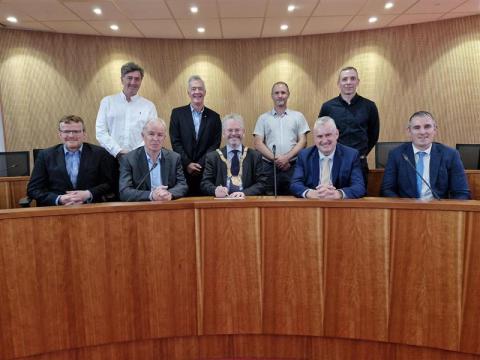
Design and Planning to start on National Watersports Campus,...
